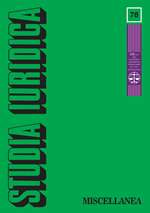REFLEXIVE JUSTIFICATION AND THE PROBLEM OF ITS RECEPTION IN ROBERT ALEXY’S THEORY
REFLEXIVE JUSTIFICATION AND THE PROBLEM OF ITS RECEPTION IN ROBERT ALEXY’S THEORY
Author(s): Paweł SkuczyńskiSubject(s): Social Philosophy
Published by: Wydawnictwa Uniwersytetu Warszawskiego
Keywords: reflexive justification; discourse theory; transcendental argument; legal argumentatio
Summary/Abstract: The aim of following paper is to reconstruct the discussion concerning reflexive justification on the basis of philosophy and philosophy of law. At first, the presented proposition is a project of Immanuel Kant’s philosophy transformation, framed within the study of the philosophy of language and realized by K.-O. Apel and W. Kuhlmann. This analysis concerns both its construction and its relation to the theory of argumentation, using the concept of an ideal and unlimited communicative community. The next discussed issue is the pleas concerning this approach, formulated by J. Habermas from reconstructive perspective, which rejects the reflexive justification and, instead of the conditions of argumentation’s possibility, it examines conditions of possibility of communication as such. The analysis also concerns R. Alexy’s transcendental pragmatic argument, which shows similarities between the reconstructive approach of J. Habermas and the reflexive justification theories of K.-O. Apel and W. Kuhlmann. In this paper, there are two streams of critique presented regarding this approach – the first concerning justification of general practical discourse’s rules, and the second concerning reception of discursive ethics in legal argumentation, a so-called Sonderfallthese. The critique of R. Alexy’s legal discourse may be interpreted as a theory searching for the difficult to accept third way between reflection and reconstruction.
Journal: Studia Iuridica
- Issue Year: 2018
- Issue No: 78
- Page Range: 430-454
- Page Count: 25
- Language: English

